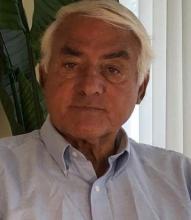When 14-year-old Ryan saw his pediatrician for his annual physical this past August, he was asked a few quick questions about whether he was having any problems, if he was feeling depressed or anxious, and if there was anything he wanted to discuss. Ryan said no to each question, then the doctor examined him, reminded him to get a flu shot, and signed off on the forms he needed to play team sports in high school. The doctor assured Ryan’s mother that he was healthy, and the visit was over. Next August, Ryan’s exam will likely include a more detailed look at his mental health.
In February 2018, the American Academy of Pediatrics updated its guidelines on screening for depression in adolescents in primary care settings. The guidelines address the problem of undiagnosed and untreated psychiatric illness in children over the age of 10 years, the shortage of available mental health professionals, and techniques primary care physicians might use to address psychiatric needs in adolescents. The AAP guidelines include a new recommendation for universal screening with an assessment tool: “Adolescent patients ages 12 years and older should be screened annually for depression [MDD or depressive disorders] with a formal self-report screening tool either on paper or electronically.”
Howard Liu, MD, is a child and adolescent psychiatrist and the interim chair of psychiatry at the University of Nebraska, Omaha, and director of the Behavioral Health Education Center of Nebraska. “I applaud the AAP for recommending universal depression screening for teenagers, as there has been a rising incidence of teen suicide, especially among female adolescents,” he said. “However, when teens screen positive, we must invest in the child mental health infrastructure to support pediatricians. This includes therapists integrated into primary care practices and prescribers with the capacity to take new patients or practice collaborative care.”
Dr. Liu noted that some of his patients drive 4-5 hours each way to see him in Omaha, then spend the night before making the return trip. “There is a dire shortage of pediatric mental health services in every state. This shifts the responsibility for care to pediatricians, teachers, and parents who often lack the resources to keep kids safe and well. It’s an unconscionable gap in care.”
Timothy F. Doran, MD, is chair of pediatrics at the Greater Baltimore Medical Center in Towson, Md., and a past president of the Maryland Chapter of the AAP. “I absolutely think every teenager should be assessed for depression,” he said. With his own patients, he asks open-ended questions about their mental health, then more specific questions about mood, depression, anxiety, sleep, appetite, and libido. If the teen indicates there are problems, he then uses a PHQ-9 to get a sense of whether the depression is mild, moderate, or severe. Dr. Doran estimates that he diagnoses depression in 5%-10% of the adolescents he screens. Baltimore is a metropolitan area with two psychiatry training programs, and Dr. Doran has developed relationships with mental health professionals who will see his patients. If he prescribes an antidepressant, most of those patients will also see a psychotherapist. He notes that it can be more difficult to find resources for children with Medicaid who do not have the resources of some of the families he treats.Dr. Doran’s practice has not yet implemented the use of a written screening tool for all adolescents. He anticipates doing this soon because of the new guidelines, but he was not enthusiastic about the prospect. “ We are already loaded down with administrative tasks and screening requirements.” Of note, in Dr. Doran’s 35 years in clinical practice, no child under his care has died of suicide.
Allen Frances, MD, offers a different take on the new guidelines. Dr. Frances was the chairman of the DSM-IV task force and is the author of “Saving Normal: An Insider’s Revolt Against Out-of-Control Psychiatric Diagnosis, DSM-5, Big Pharma, and the Medicalization of Ordinary Life” (New York: HarperCollins, 2014). Dr. Frances has used his Twitter feed to express his objections to the new guidelines for universal depression screening for teenagers. “Universal mental health screening of children sounds virtuous but is a big mistake. Massive overdiagnosis results in 1) Too much ineffective/unsafe #medication; 2) Needless #stigma; 3) Wasting precious resources. Instead, provide easy access to treatment for kids who really need it.” He goes on to tweet about unintended consequences of universal screening, including the concern that screening may identify teens with normal transient sadness or substance-induced mood changes as being clinically depressed. In Twitter lingo, Dr. Frances continues: “‘Early-warning signs of mental illness in kids are often false alarms leading to unneeded #medication/#stigma. Also, we don’t provide adequate psych care for kids who desperately need it. It makes no sense to create new fake patients when we are neglecting the real ones we already have.”



